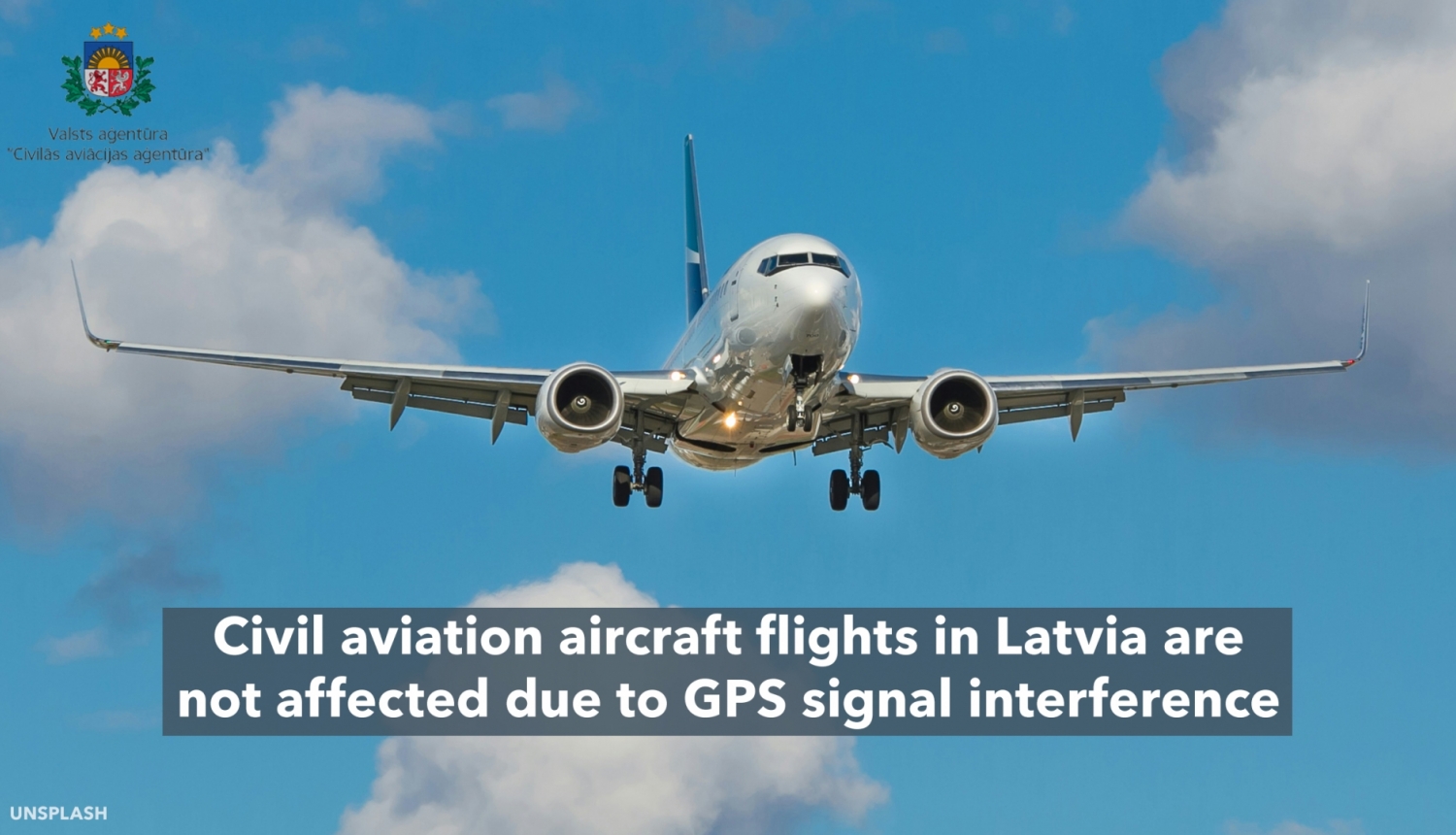The State Agency "Civil Aviation Agency" (CAA) in cooperation with international partners monitors the development of GPS signal interference, while reminding that GPS interference does not affect the safety of aircraft flights in the airspace of the Republic of Latvia.
The decision by Finland's national airline "Finnair" to postpone flights to Tartu Airport in Estonia due to GPS interference is done as a precaution and not because of a direct threat. Tartu Regional Airport operates with a GPS system, it does not have ground-based aeronautical equipment, as a result of which the airline takes preventive measures to maintain a consistently high level of safety.
Aircraft are equipped with several navigation systems, not just GPS. This includes INS (inertial navigation systems), VORs (radio direction receivers), and DMEs (distance measuring equipment) that can operate independently of GPS and provide the necessary navigation in cases where GPS signals are disturbed. Pilots are trained to handle a variety of conditions, including GPS interference. Air traffic control centers also make a significant contribution to ensuring safe flights. The civil aviation system is designed to be robust and capable of maintaining operational security even in the face of such technical challenges.
“The system is not that vulnerable. The satellite navigation system is not the primary means of navigation. It is modern and the most accurate, but there are other systems on the ground and in aircraft that continue to operate," says CAA director Māris Gorodtsovs.
Every case of a GPS malfunction is centrally collected and analyzed by the European Aviation Safety Agency, which has also issued a safety bulletin stating that the situation is not critical. At the same time, recommendations have been given to the competent authorities of the Member States, air navigation service providers and aircraft operators for actions to improve the flight safety of civil aviation aircraft.
At Riga Airport and in the airspace of the Republic of Latvia, other means of navigation are also used in addition to the GPS signal system - radio beacons, distance measuring devices and primary radars, which provide alternative navigation options. This allows continued safe air traffic in the entire airspace, as well as to and from Riga Airport.
Regional airports that do not have sufficient alternative equipment can mainly suffer from GPS interference. Accordingly, following airline procedures, aircraft pilots make a decision to eliminate minor risks to aircraft flight safety, such as flying to an alternate aerodrome.
Airlines also invest additional resources in preparing and training pilots to use alternative navigation tools in cases where one of them is not available. For example, the Airbus A220-300 aircraft used by airBaltic has multi-level navigation systems that ensure independent and accurate navigation and landing procedures.
Additional information:
Aivis Vincevs
State Agency "Civil Aviation Agency"
Manager of operational situations
Tel.: 60001672
e-mail: aivis.vincevs@caa.gov.lv



